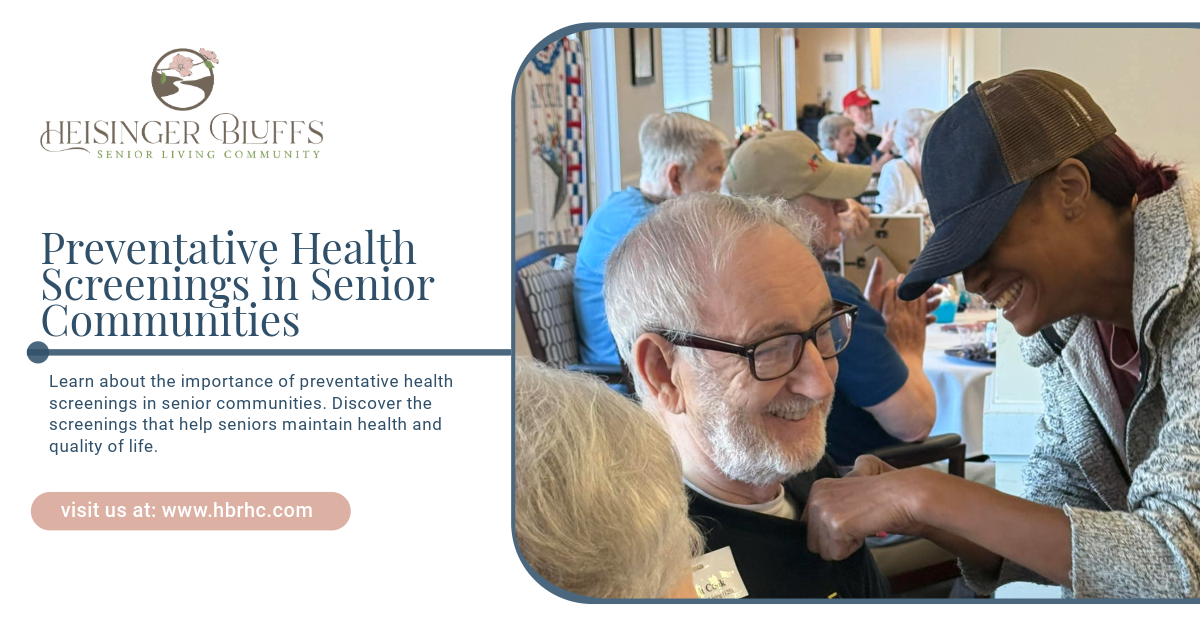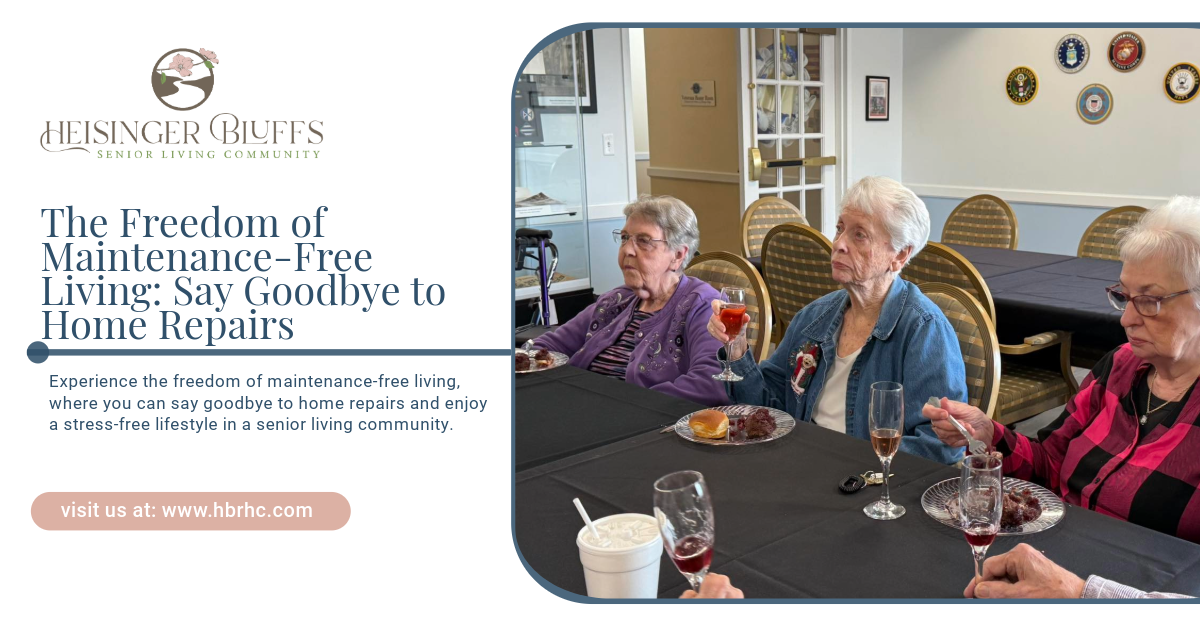Family Involvement in Nursing Homes: Staying Connected with Loved Ones

Moving a loved one into a nursing home can be a challenging transition for both the individual and their family. While nursing homes offer professional care and support, families often worry about staying connected and involved in their loved one's life. However, maintaining strong family involvement in nursing homes is essential for the well-being and happiness of residents.
In this blog post, we'll explore the importance of family engagement, provide practical tips for staying connected, and explain how families can play an active role in their loved one's care, even from a distance.
Why Family Involvement is Crucial in Nursing Homes
A strong support system is vital to the emotional, mental, and physical well-being of individuals residing in nursing homes. Family involvement helps:
- Boost Emotional Health: Regular communication and visits from family members provide emotional comfort and help reduce feelings of loneliness and depression among residents.
- Ensure Quality of Care: Families who remain engaged can help ensure that their loved ones are receiving proper care by collaborating with staff and staying informed about treatment plans.
- Maintain a Sense of Belonging: Even when living in a new environment, seniors feel more connected to their lives and identities when their family continues to be a part of their daily routine.
- Encourage Physical and Mental Stimulation: Family visits and interactions can motivate seniors to stay mentally active, participate in social activities, and engage in physical exercise, all of which contribute to overall health.
Staying connected may require creativity and effort, especially when families are separated by distance or busy schedules, but there are many ways to maintain a strong bond with a loved one in a nursing home.
1. Schedule Regular Visits
Visiting in person is one of the most meaningful ways to stay involved in your loved one's life. Even if visits can’t happen every day, planning them regularly gives your loved one something to look forward to.
Tips for Meaningful Visits:
- Be present: When you visit, give your full attention. Engage in conversation, share memories, and ask about their day-to-day activities.
- Involve the whole family: Bring children, grandchildren, or other relatives to visit. This can strengthen family bonds and offer variety in the resident’s social interactions.
- Bring personal touches: Photos, favorite books, or other personal items can make visits more special. You can also bring small snacks, as long as they align with any dietary restrictions.
- Participate in activities: Join your loved one in the community’s activities, such as attending social events, going for walks, or engaging in art and craft sessions together.
If distance is a factor, planning longer but less frequent visits can still create meaningful experiences.
2. Use Technology for Virtual Connections
When in-person visits aren't possible, technology offers an excellent way to stay connected. Virtual communication tools can keep families close, even when they’re miles apart.
Ways to Stay Connected Virtually:
- Video calls: Platforms like Skype, Zoom, or FaceTime allow for face-to-face conversations, even when you’re not physically present. Help your loved one set up a tablet or phone for easy video calling.
- Text messaging: Simple text messages can be a great way to check in daily. Sending encouraging notes, funny memes, or family updates can brighten their day.
- Email: Email allows you to share more detailed updates, pictures, and even videos. If your loved one is unfamiliar with email, nursing home staff may be able to assist with opening and reading emails.
- Social media: Many seniors enjoy staying in touch with family through platforms like Facebook, where they can see pictures, updates, and messages from multiple relatives at once.
Using technology to stay connected also empowers your loved one to engage with the outside world, making them feel more involved in family life.
3. Participate in Care Planning and Decisions
Family members play a critical role in advocating for the best care for their loved ones. Regularly engaging with the nursing home staff and being involved in care planning ensures that your loved one receives personalized, appropriate care.
Ways to Stay Involved in Care Planning:
- Attend care meetings: Nursing homes often hold regular care plan meetings to discuss the resident’s health, progress, and future care needs. Whenever possible, attend these meetings, either in person or via video call, to stay informed and provide input.
- Stay in communication with staff: Develop a good relationship with the nursing home staff. Reach out to the caregivers, nurses, and doctors regularly to ask about your loved one's well-being and any changes in their condition.
- Advocate for your loved one: If you have concerns about the level of care or specific needs that aren’t being met, don’t hesitate to speak up. Collaborating with the nursing home staff ensures that your loved one’s preferences and health needs are respected.
Your involvement in care decisions not only improves the quality of care but also strengthens the bond between you and your loved one by showing them you are committed to their well-being.
4. Encourage Participation in Activities
Nursing homes often offer a variety of activities and social events designed to keep residents engaged, active, and socially connected. Encouraging your loved one to participate in these activities can enhance their quality of life and help them build friendships within the community.
How to Support Activity Participation:
- Learn about available activities: Stay informed about the nursing home’s event schedule. You can encourage your loved one to attend activities that match their interests, such as exercise classes, arts and crafts, or group outings.
- Offer encouragement: Some residents may initially feel reluctant to participate in activities due to fear of meeting new people or concerns about their abilities. Offer gentle encouragement and reassurance.
- Join them: If possible, join your loved one for activities such as games, social events, or outings. Your involvement can give them the confidence to try new things.
By supporting their participation in social activities, you’re helping your loved one stay physically active and mentally engaged, which is beneficial for their overall health and happiness.
5. Send Letters and Care Packages
Handwritten letters and care packages are heartfelt ways to remind your loved one that you’re thinking of them. While virtual communication is convenient, a tangible note or gift can create a personal connection that feels more intimate.
What to Include in Letters and Care Packages:
- Personal notes: Write about what’s happening in your life, share funny stories, or reminisce about happy memories.
- Photos: Include recent photos of family members, pets, or special occasions. Consider sending a photo album or scrapbook.
- Comfort items: Small gifts like blankets, cozy socks, or favorite snacks can bring comfort and joy to your loved one.
- Hobbies and puzzles: Send puzzles, books, crossword puzzles, or coloring books to keep them entertained.
Even small gestures, like a card or postcard, can lift your loved one’s spirits and remind them that they are loved and remembered.
6. Respect Their Independence
While it’s important to stay connected, it’s equally crucial to respect your loved one’s independence and boundaries. Many seniors value their independence, even in a nursing home setting, and appreciate having time to themselves or with their new friends.
Tips for Balancing Involvement and Independence:
- Don’t overwhelm them: While frequent communication is important, try not to overwhelm your loved one with too many calls or visits if they need their space.
- Respect their schedule: Nursing homes have schedules filled with activities and routines, and your loved one may have their own preferences for how they spend their time. Be respectful of their routine and don’t feel hurt if they can’t always talk or meet when you want.
- Encourage friendships: Allow your loved one to develop friendships and social connections with other residents. These friendships can greatly enhance their experience in the nursing home.
Giving your loved one the space to build new relationships and participate in activities on their own terms helps foster a sense of control and dignity.
7. Plan Family Outings and Special Visits
Whenever possible, consider taking your loved one on family outings or planning special visits. These outings provide an opportunity for quality time outside the nursing home environment and allow your loved one to enjoy different experiences.
Ideas for Family Outings:
- Meals out: Taking your loved one out for lunch or dinner at a favorite restaurant is a simple yet meaningful way to spend time together.
- Day trips: Depending on your loved one’s mobility, consider a day trip to a park, museum, or family gathering.
- Holidays and celebrations: If your loved one can’t travel home for holidays or special occasions, bring the celebration to them. Decorate their room, bring their favorite foods, and celebrate together in the nursing home.
When planning outings, be sure to check with the nursing home staff about any medical or mobility considerations and ensure that the environment is safe and accessible for your loved one.
Conclusion
Family involvement in nursing homes is essential for ensuring the emotional well-being, happiness, and quality of care of residents. By staying engaged, visiting regularly, using technology, and advocating for their care, you can play an active role in supporting your loved one. From participating in activities to sending thoughtful letters, there are many ways to stay connected, even when distance or schedules are challenging.
At Heisinger Bluffs, we understand how important it is for families to remain involved in their loved one’s care. We provide a welcoming environment that encourages family engagement, and our staff is always available to facilitate communication and support. If you have questions about how to stay connected with a loved one in our community, reach out to us today.











